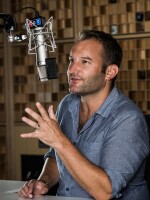DAVID GREENE, Host:
We have received word this morning of the assassination of former Afghan president Burhanuddin Rabbani. He was president of Afghanistan prior to the rise of the Taliban in the 1990s. Most recently, he was head of the country's High Peace Council, leading Afghanistan's effort to reach a political settlement with the Taliban. After learning the news, the current president, Hamid Karzai is cutting short his trip to the United Nations to return to Afghanistan. And joining us on the line from Kabul is NPR's Quil Lawrence. And Quil, what do we know at this point?
QUIL LAWRENCE: We understand from sources on the High Peace Commission that two members of the Taliban were supposed to be bringing an important message from the Quetta Shura or the Peshawar Shura - these two high councils of the insurgency - to Burhanuddin Rabbani, who is the head of President Karzai's Peace Council. Apparently, once they got inside his house, one of them was bowing to kiss Professor Rabbani's hand, and he apparently had a bomb concealed in his turban. This has happened several times, recently, in Afghanistan. Pashtun - especially ethnic Pashtuns here wear very large turbans, apparently enough to conceal a bomb which killed Burhanuddin Rabbani and wounded several others - one of them, possibly a serious wound.
GREENE: So this was supposed to be a peace meeting, a peace gesture, and it appears that they used it to attack and target Rabbani.
LAWRENCE: Yes. And Rabbani was seen by many critics as a strange choice as a head of the Peace Council, since he was part of the Northern faction here, that is most opposed to cutting a deal with the Taliban. He was certainly on their list of politicians who have recently been subject to assassination attempts. So it's not a surprise that they would target him. But this certainly would spike the efforts of this High Peace Council to be making any efforts at reconciliation with the Taliban if they stage a meeting which is supposed to be about peace, and then use it to assassinate him.
GREENE: Was anyone else injured or killed in this attack, Quil?
LAWRENCE: We have unconfirmed reports about serious injuries for other members of the Peace Council, but we - and one of them might be in critical condition - but we can't confirm, yet, whether anyone else was killed. The explosion was close enough to the U.S. Embassy - only a couple of hundred yards out the back door of the U.S. Embassy - that it set off the air raid sirens and sent everyone into bomb shelters for a short time, before they determined that the bomb was outside their compound.
GREENE: Well - and Quil, you mentioned the U.S. Embassy, they were attacked there just last week, and now this. I mean, does this reflect some new level of violence in Afghanistan?
LAWRENCE: Well, it certainly reflects a heightened level of violence here in the capital. Yes, like you said, last week - exactly one week ago - there was a 20-hour assault. And it's in the same heavily fortified section of Kabul which was thought to be the most secure area in town. There are many embassies there, of course, including the huge U.S. Embassy, NATO compound, and USAID compound, and many Afghan VIPs live there. So, there are a lot of questions being raised about the Afghan forces' ability to secure the capital when in the space of a week there have been two high-profile attacks like this.
GREENE: Quil, thank you very much.
LAWRENCE: Thank you, Dave.
GREENE: And just to repeat the news that we have received this morning, news of the assassination of former Afghan president Burhanuddin Rabbani. He was president of Afghanistan prior to the rise of the Taliban in the 1990s. Transcript provided by NPR, Copyright NPR.







